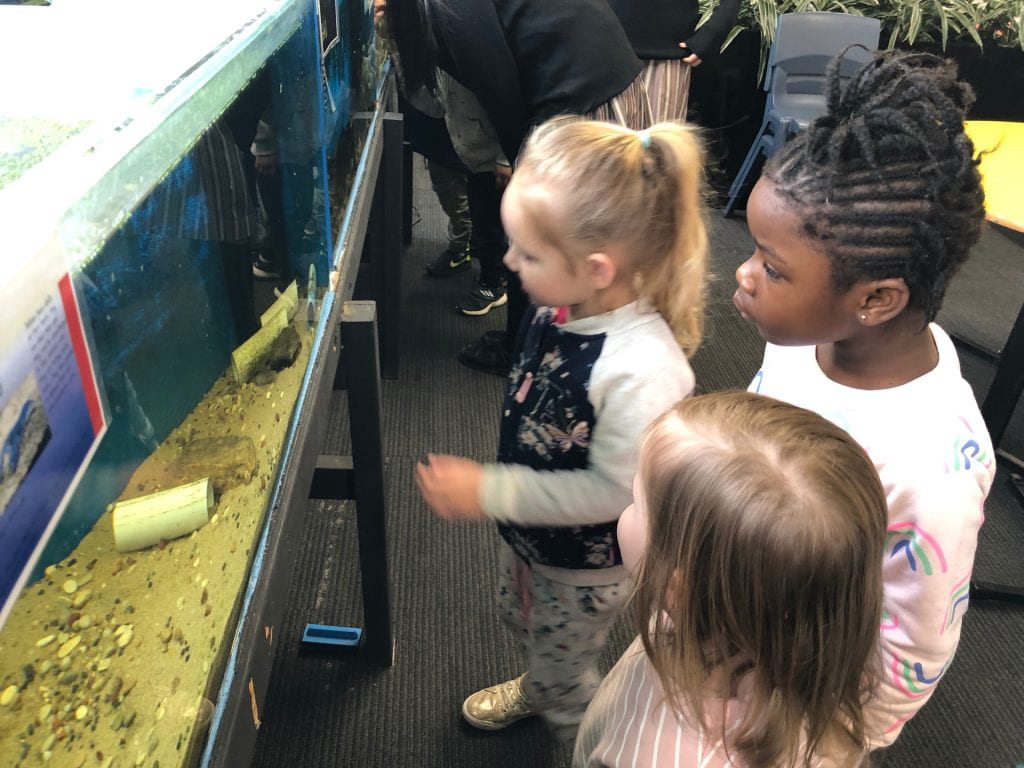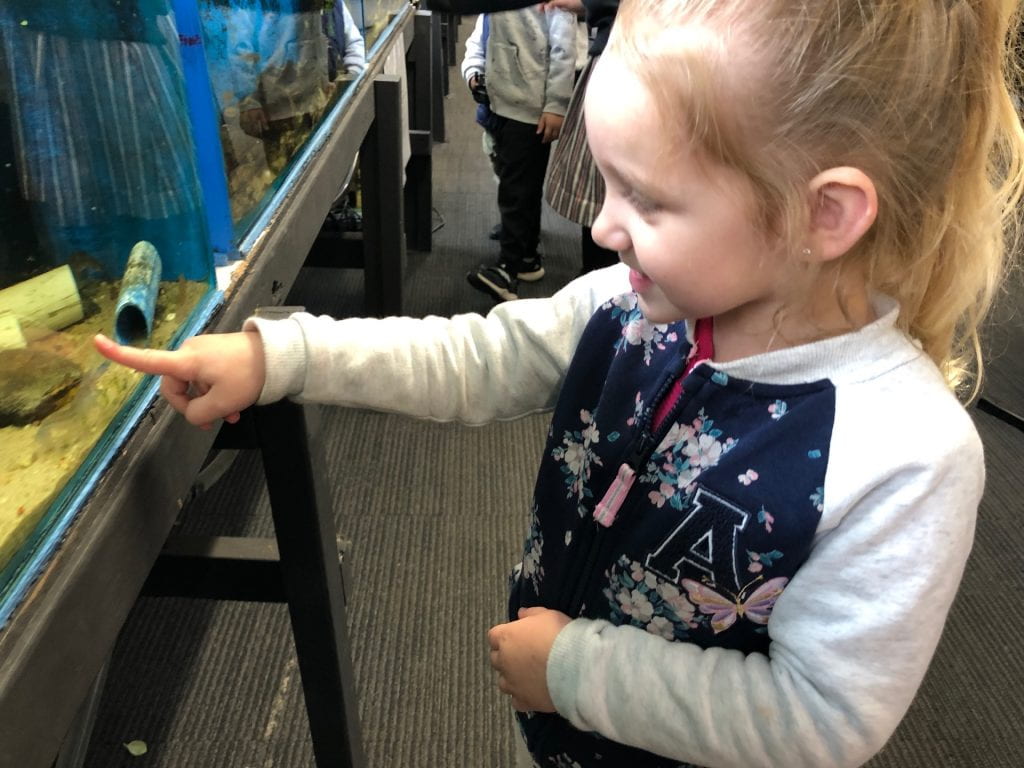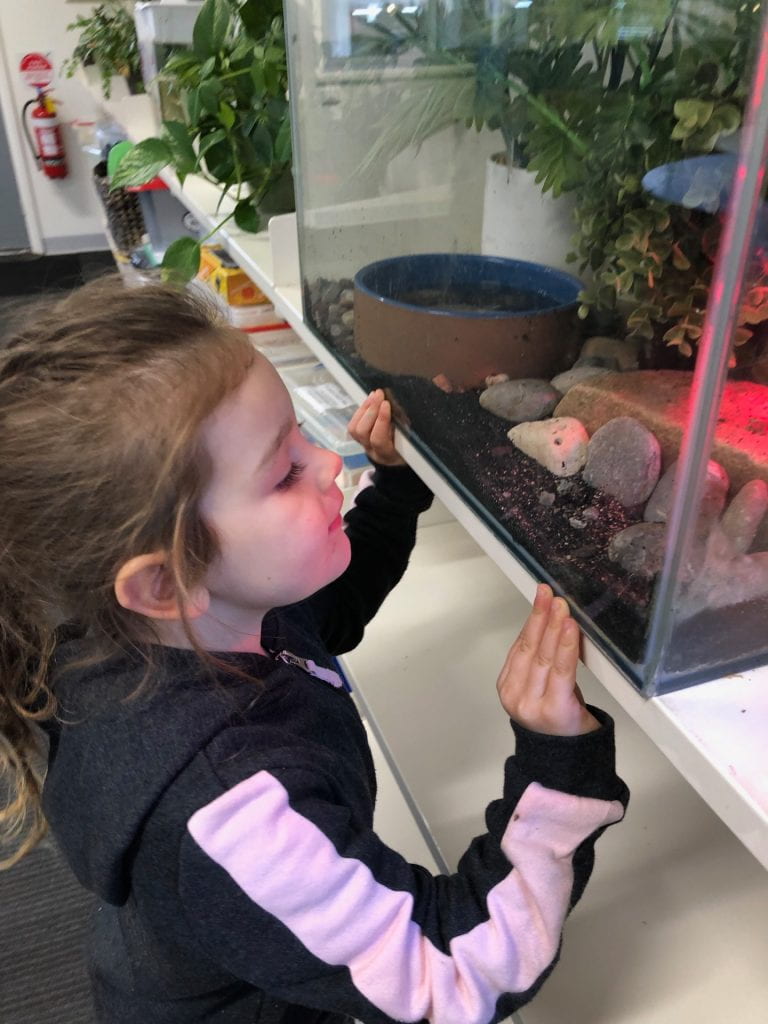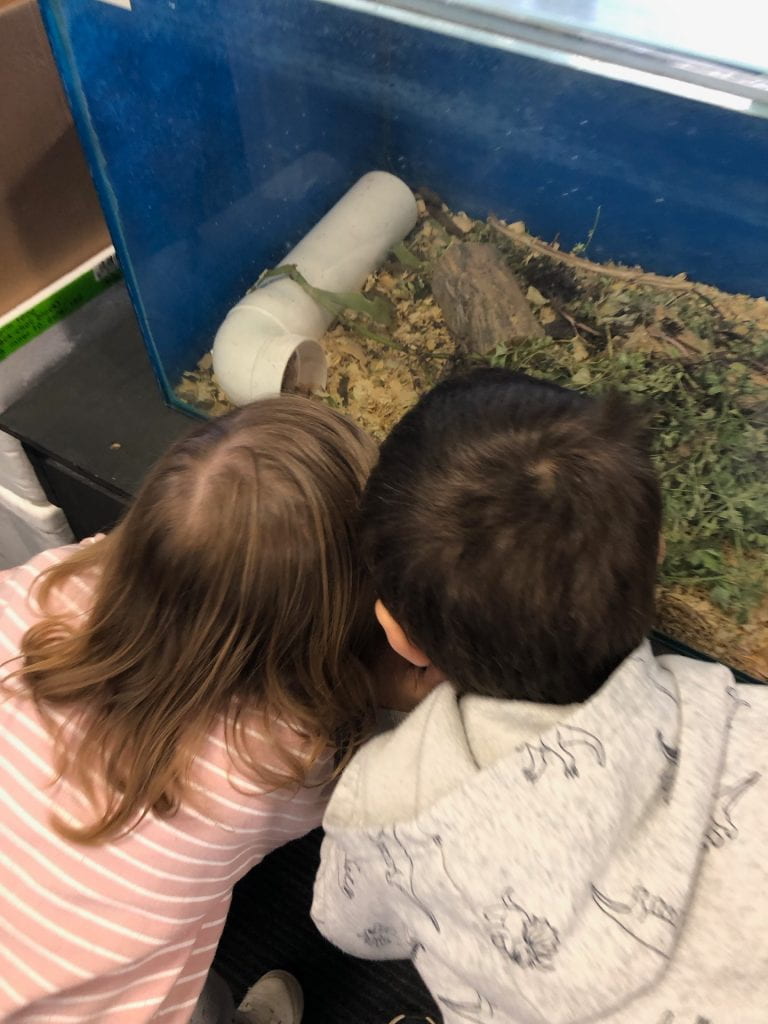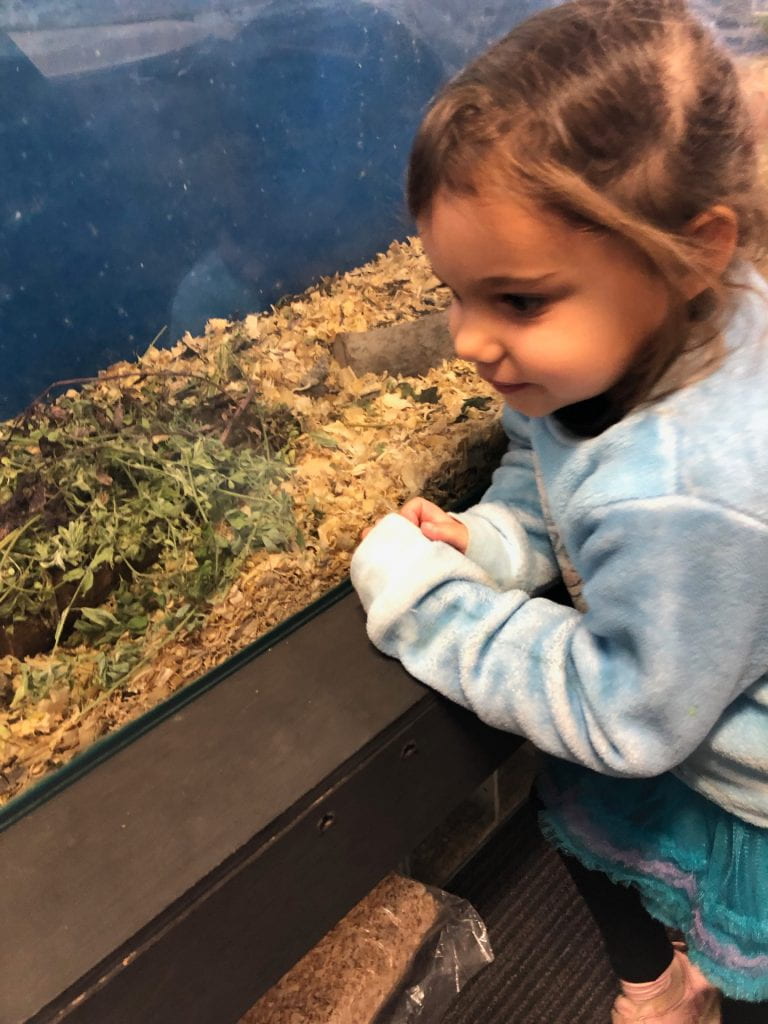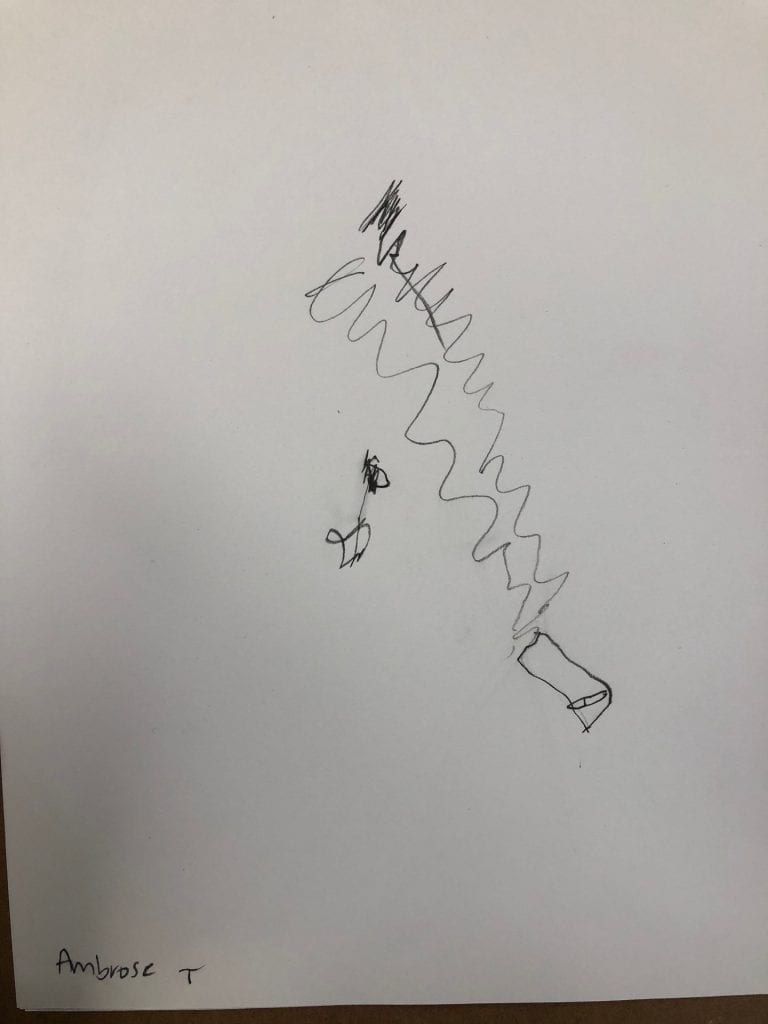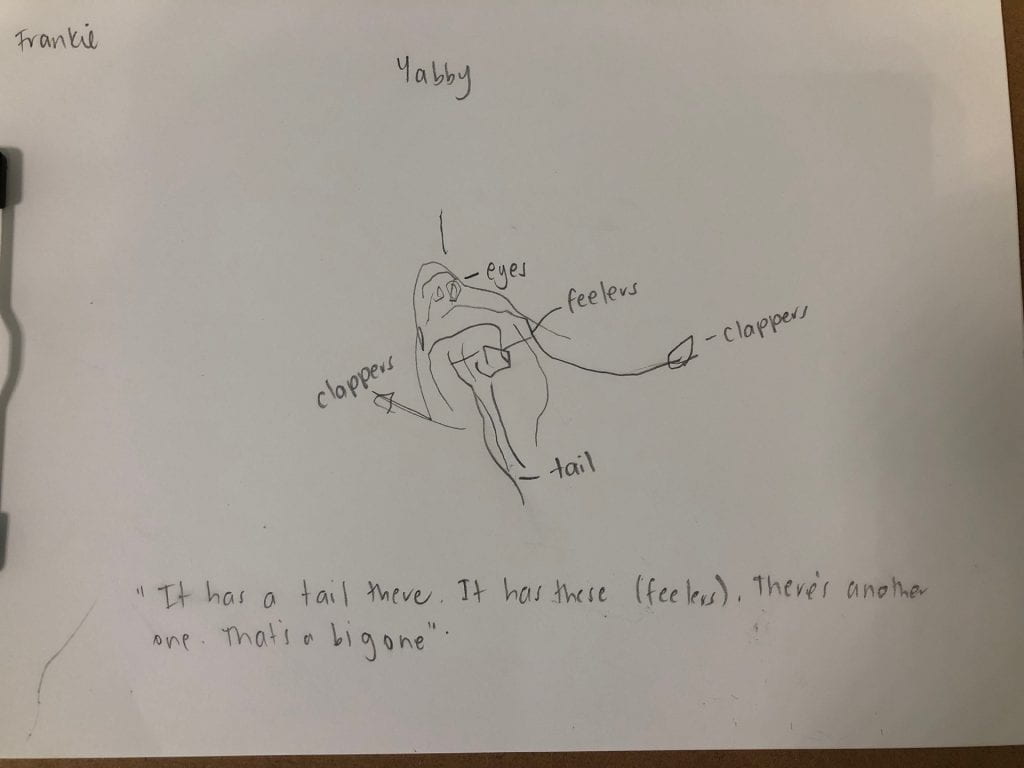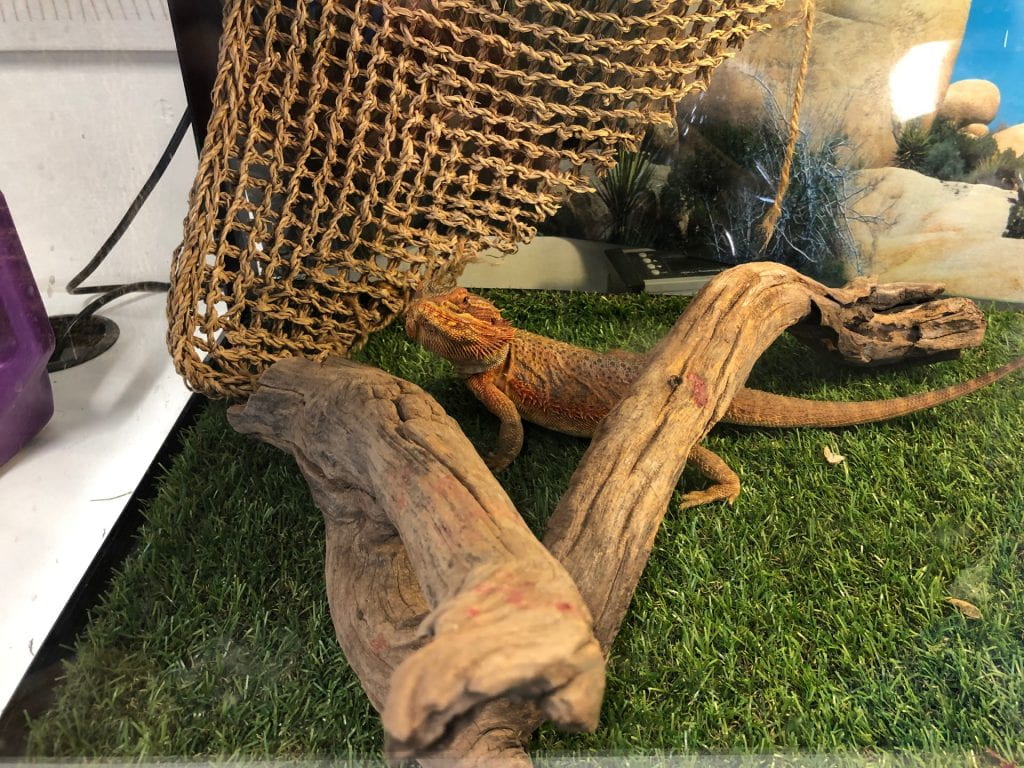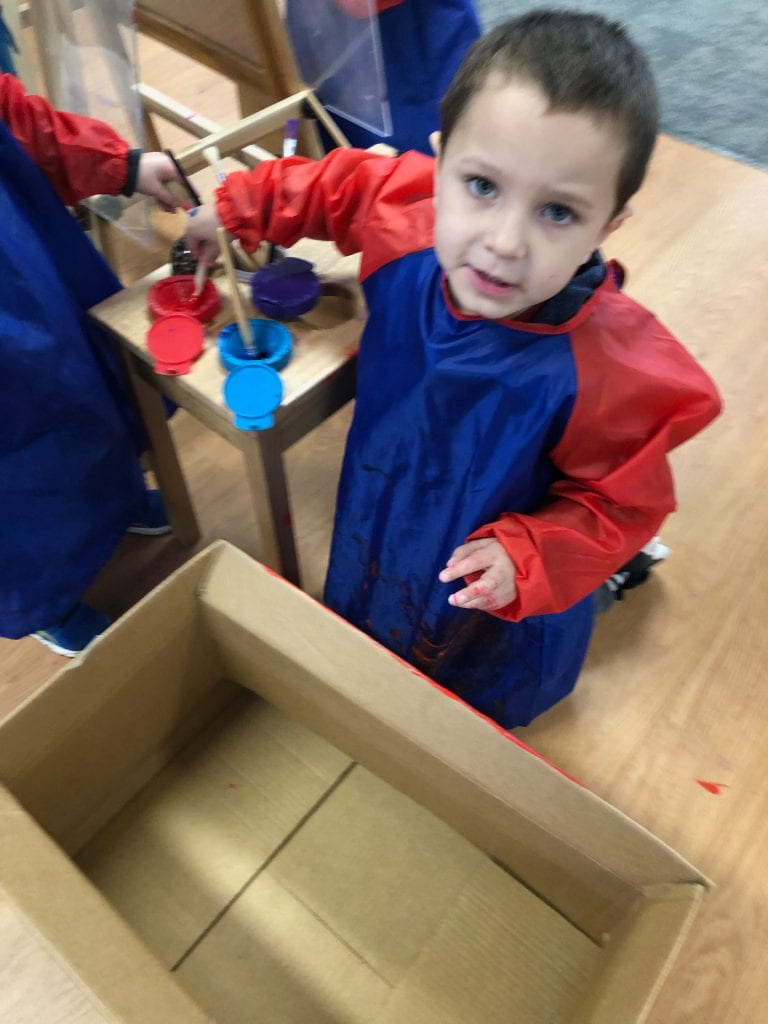This morning we visited the MUDLA (multi-disciplinary learning area) in the school.
The children explored and viewed the many different animals such as hopping mice, green tree frog, long-necked turtle, yabbies and a variety of fish.
Some children documented their observations through drawings.
- Arabella’s observation of a turtle
- Xavier noticed animals in the water
- Ambrose drew a fish
- Aicha’s drawing
- Frankie identified the different parts of a Yabby
Our friends in year 5/6 showed us Memphis, a bearded dragon. We had the opportunity to look closely at Memphis.
What can you see?
Aicha: I see his tail.
Omelia: and legs.
Will: It’s sticking to his body (the dragon was attached to Asher’s jumper)
Kanav: He’s stuck
Liam: His legs are moving.
Some of us then stroked and patted Memphis gently.
What does Memphis feel like?
Aicha: Spikey
Arabella: Bumpy
Hani: I don’t like lizards
Tavae: I didn’t touch it.
Kanav: Feeled good.
Olivia: I touched it on the back. It was spiked and rough at the back.
We love exploring our environments and learning more about animals.
EARLY YEARS LEARNING OUTCOMES:
Outcome 2: Children are connected with and contribute to their world.
- Children become socially responsible and show respect for the environment
Outcome 4: Children are confident and involved learners.
- Children develop dispositions for learning such as curiosity, cooperation, confidence, creativity, commitment, enthusiasm, persistence, imagination and reflexivity
- Children develop a range of skills and processes such as problem solving, enquiry, experimentation, hypothesising, researching and investigating

